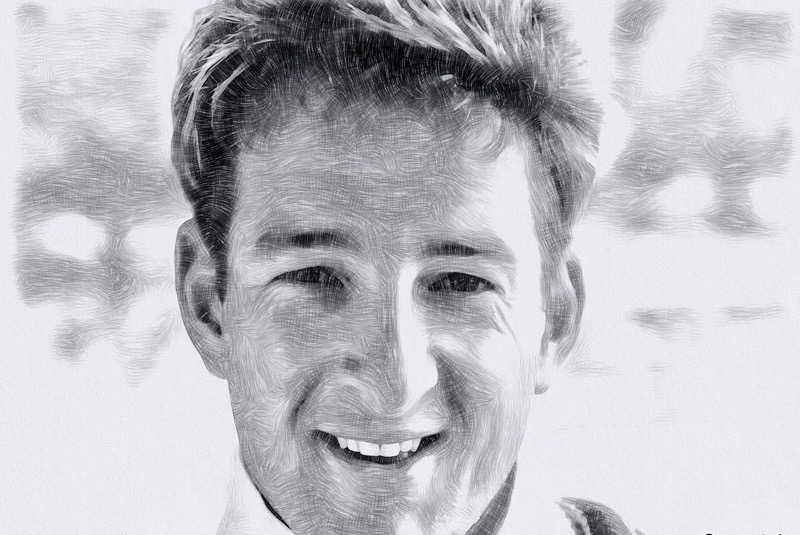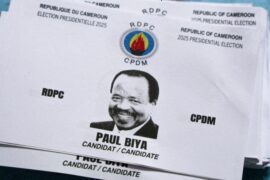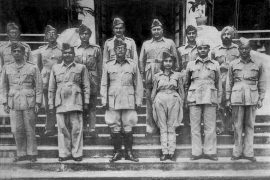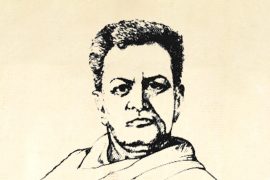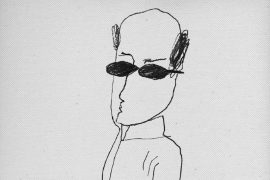“Weave harmonies divine, yet ever new,” wrote P B Shelley, with grace and poetic licence. Reason: success comes from strength, strength comes from harmony, and harmony requires consistency in all things.
Mark Waugh was proof of such an outlook. He seemed to be doing it, all the time, in spite of a few poor runs, with his own lyre, the willow, and allegations of not doing the willow sport proud, what with his so-called ‘proximity’ to match-fixing ‘shenanigans.’
Yet, when it came to his work on the field, he used his bat, not merely as a ‘mallet,’ but as an artist’s brush, or magic wand. He had, in the process, walked a step further, on his own strength, and brought about a transformation, a refreshing change, which was exciting, without ever being unsettling, or threatening.
He, thus, set an example of his own. His resolve too never wavered in the pursuit of his vision: a celebration of philosopher Friedrich Nietzsche’s doctrine of the will to power is the will to ‘score runs…’ and more runs, with sublime dignity, style, and regal essence.
Agreed that Mark was a straight-line thinker; one who didn’t tinker with the common aphorisms of cricket. Yet, he was exemplary in the two forms of the sport. What’s more, he never fell into that trap: of one extreme, or the other. A great slip-fielder like no other, Mark [whose record of Test-match catches was overhauled by Rahul Dravid] was sure marked for genius in that position. He made no chance a chance, a half-chance a sure bet. Without much effort.
Class Act
Mark was rated by as one of the most gifted batsmen in cricket. A fine, aesthetic striker of the ball, who was blessed with a grand repertoire of strokes, which would be any batsman’s envy, Mark’s was a class act. Cricket came naturally to him, so much so he was himself puzzled at his own artistry — wielding the bat with as much ease as a child on the Casio musical instrument.
Yet, Mark was completely different from the likes of his two famous contemporaries, Sachin Tendulkar and Brian Lara. He even looked laid-back, or impassive at times. Until the last moment. After that, it was pure ecstasy: of the bat caressing the ball, as it were, even when smacked. Or, a brilliant catch, just plucked like a flower from the garden. Or, the dismissal of a batsman with his playable — yet intelligent — spin bowling.
Mark’s immense talent was only too well-known even before he had played for Australia. He had excelled in the English county circuit — a good place to start with, before you hit it off at the highest level of the sport — at a time when his twin-brother, Steve, was making waves in Tests. When he walked into the Aussie Test side, it simply became a case of sibling rivalry carried into adulthood. For all the good reasons — for the good of Aussie cricket.
Australia won a great Test match at Kingston, in May 1995 — and, series — by an innings and 52 runs, thanks to the Waugh brothers’ superlative efforts: Mark, 126; Steve, 200. Australia had not beaten the West Indies since the islanders’ 5-1 ‘mauling’ in 1974-75, and the rubber earlier in 1972-73.
With the Sir Frank Worrell Trophy in hand, cricket’s wheel of fortune had turned full circle. Mark Taylor’s Aussie outfit had displaced the Caribbean ‘hold’ as the sport’s most potent force. It was a wondrous team effort: a series triumphed through Taylor’s innovative captaincy, and catapulted by the inspired, heroic deeds of Steve and Mark — two talented twins who made their country proud.
Mr Dependable
Mark continued to blossom. He was the tower of strength and Mr Dependable of Australian cricket. He brought to his batting a new light on the basics, the essentials of the sport, and old light on the new demands of instant cricket — not to mention his down-to-earth probity, a fondness for race horses and the good things of life. That Mark was involved in a major controversy, in a Test match, against South Africa, in 1998, when he accidentally broke his wickets, in a ‘groggy’ state, is now history. It won’t, however, detract from the merits of his standing — as a cricketer of rare stock.
His record is noteworthy. Tests: matches 128, innings 209, not out 17 times, runs 8,029, highest score 153 not out; average, 41.81, hundreds 20, fifties 47, catches 181. ODI: matches 244, innings 236, not out 20 times, runs 8,500, highest score 173; average 39.35, hundreds 18, fifties 50, catches 108. Bowling: Tests, 59 wickets; ODI: 85 wickets.
What made Mark so special was his strong confidence, focused concentration to attaining his objective, and stubborn consistency in thought and action. He’d a good technique and a robust capacity to delight in the process along the way. He’d a keen eye, perfect balance, footwork, judgment, and a scientific framework to chiselling exciting possibilities. Not that he’s faultless. Well, almost. In his element, there’s just no stopping him.
Mark, who scored three centuries in a single World Cup event — the first-ever batsman to do so — was a virtuoso batsman. He made batting methodologies of some good Test and one-day players seem workaday stuff. He improvised with sheer genius and his masterly simplicity, certainty, and delicacy, were often quite confusing to the opposing captain and his bowlers.
Mark drove magnificently on either side of the wicket, bereft of ferocity, fuss, or undue haste. He executed his strokes like a billiards champion, placing a single, or smoothly putting one away for a four, or six. He had something of a Rohan Kanhai and Denis Compton in him.
His niche in the willow sport’s Hall of Fame will be as secure as Roger Federer’s grand titles in tennis.
-30-
Copyright©Madras Courier, All Rights Reserved. You may share using our article tools. Please don't cut articles from madrascourier.com and redistribute by email, post to the web, mobile phone or social media.Please send in your feed back and comments to [email protected]

